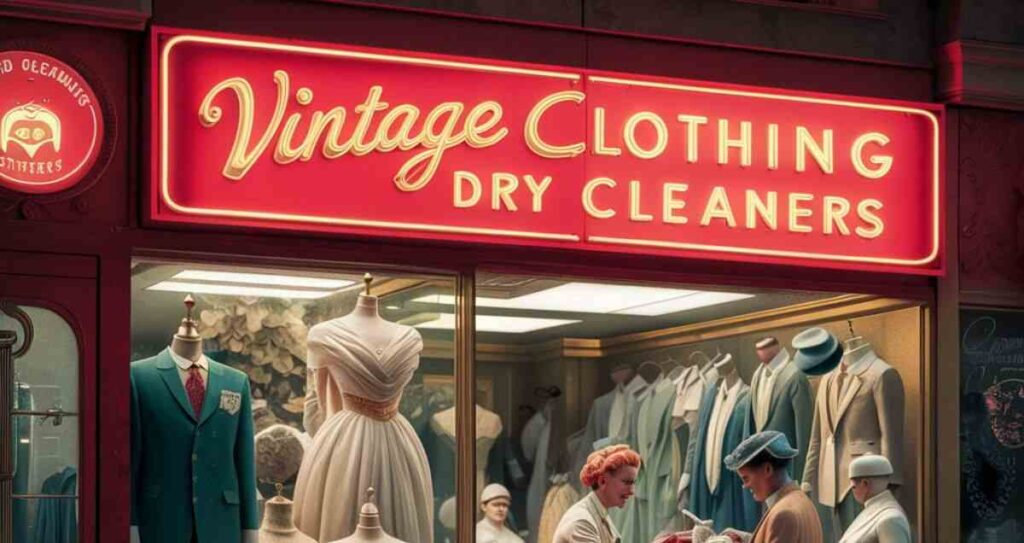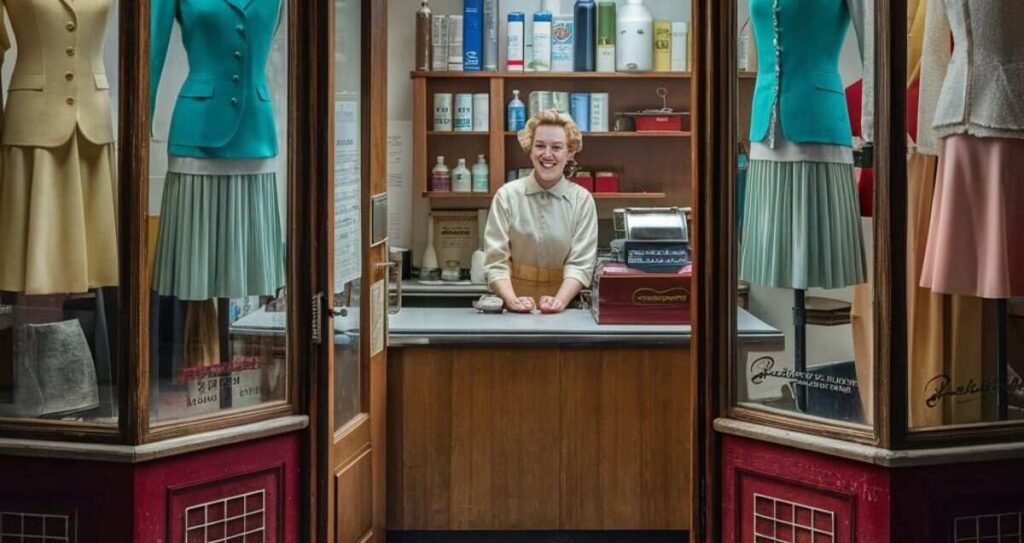Vintage Clothing Dry Cleaners specialize in cleaning and preserving garments from past decades. These professionals use tailored techniques to handle delicate fabrics, intricate embellishments, and aging materials, ensuring your vintage wardrobe retains its charm and structural integrity for years to come.
Ever had a cherished vintage piece lose its luster after improper cleaning? Don’t let that happen to your wardrobe. Vintage clothing dry cleaners are your secret weapon for keeping timeless fashion in pristine condition. They combine expertise and care to handle even the most fragile fabrics, letting you wear history with confidence.
Vintage clothing requires specialized care due to its age, unique materials, and fragile embellishments. Ordinary dry cleaners might not have the skills or equipment to clean vintage pieces properly, often leading to fading, shrinkage, or damage. Trusted vintage clothing dry cleaners use advanced methods like low-heat pressing, eco-friendly solvents, and hand cleaning to ensure every garment gets the care it deserves.
Why Vintage Clothing Deserves Special Care

Vintage Clothing Dry Cleaners is more than just a fashion statement—it’s a slice of history and a tribute to timeless craftsmanship. These garments, often fragile and made from unique fabrics, require special attention to preserve their charm. Whether it’s a flapper dress from the 1920s or a classic leather jacket from the 1980s, proper care ensures your vintage treasures remain in excellent condition.
One of the key steps in maintaining vintage garments is selecting the right Vintage Clothing Dry Cleaners. Not all dry cleaners have the expertise needed to handle delicate materials, intricate embellishments, or aged fabrics. In this guide, we’ll explore the ins and outs of dry cleaning vintage clothing, highlight what to look for in a professional cleaner, and share tips to ensure your wardrobe stands the test of time.
What Makes Vintage Clothing Unique?
The Fabric Factor
Vintage Clothing Dry Cleaners often features materials no longer widely used today, like rayon from the 1940s or silk blends that have aged over decades. Each fabric reacts differently to cleaning processes:
- Silks and Satins: Prone to water stains and fading under harsh chemicals.
- Wool and Tweed: Require gentle care to avoid shrinkage and pilling.
- Rayon: Weak when wet, needing expert handling.
Embellishments and Details
Vintage pieces often come with hand-sewn beadwork, lace, or embroidery that modern machines can’t replicate. These details can loosen or damage during rough cleaning procedures. For example, a 1950s sequined cocktail dress could lose its shine if cleaned improperly.
Aging and Fragility
Time takes a toll on all fabrics. Threads weaken, colors fade, and structural integrity diminishes. That’s why professional cleaners who specialize in vintage clothing are invaluable—they know how to preserve the garment without exacerbating wear and tear.
Why You Need a Specialist: Vintage Clothing Dry Cleaners
Expertise Matters
Regular dry cleaners may not understand the intricacies of vintage garments. A specialist will:
- Assess fabric type, age, and construction.
- Choose appropriate solvents and techniques.
- Handle items with utmost care to avoid damage.
For example, a regular cleaner might use generic solvents that could harm delicate fibers, while a vintage clothing expert would use milder, customized solutions.
Preservation Techniques
Specialist dry cleaners often incorporate modern technology with traditional methods to:
- Prevent dye bleeding.
- Maintain fabric softness.
- Stabilize weakened areas using low-heat processes.
Long-Term Investment
While professional vintage cleaning services may cost more, they extend the life of your cherished garments. A well-preserved piece can last decades longer, making the expense worthwhile.
What to Look for in Vintage Clothing Dry Cleaners

Experience with Vintage Fabrics
Ask potential cleaners about their history with vintage garments. Do they understand specific fabric needs? A good cleaner will confidently share examples of past work.
Use of Gentle Cleaning Products
Ensure the cleaners use mild, non-toxic solvents. Harsh chemicals can weaken threads and discolor fabric.
Proper Storage Solutions
Many dry cleaners offer storage services. Look for climate-controlled environments with minimal exposure to light and humidity to keep your garments in pristine condition.
Reviews and Recommendations
Check customer reviews or ask other vintage enthusiasts for recommendations. Reliable services often have a solid reputation in the community.
Case Study: The Vintage Velvet Jacket
A collector brought a 1960s velvet blazer with intricate embroidery to a dry cleaner who lacked vintage expertise. The garment was returned with the embroidery warped and the velvet crushed. After seeking a specialist, the blazer was restored using steam treatments and hand repairs, proving the value of entrusting vintage clothing to experts.
How to Care for Vintage Clothing at Home
While professional cleaning is essential, you can take steps at home to maintain your collection between visits to the dry cleaner.
Gentle Spot Cleaning
Use a soft, damp cloth to remove small stains. Avoid scrubbing, as it can weaken the fabric.
Proper Storage
- Use padded hangers for delicate dresses.
- Store heavier garments like coats flat to prevent stretching.
- Keep items in breathable garment bags, avoiding plastic covers.
Avoid Sunlight and Humidity
Direct sunlight can cause fading, and humidity can lead to mold or mildew. Keep your wardrobe in a cool, dark place.
Rotate Your Collection
Wearing and washing the same items repeatedly accelerates wear. Rotate garments to reduce strain on specific pieces.
Key Considerations for Specific Fabrics
| Fabric Type | Cleaning Method | Storage Tips |
|---|---|---|
| Silk | Hand-clean or dry clean; avoid water. | Store in tissue-lined bags to prevent creasing. |
| Wool | Dry clean only; avoid high heat. | Keep mothballs or cedar blocks in storage. |
| Leather | Spot-clean; condition regularly. | Store in a breathable cover, away from direct light. |
| Rayon | Professional dry cleaning recommended. | Fold neatly to avoid stretching. |
Common Myths About Vintage Clothing Care
- “All dry cleaners are the same.”
Not true! Only specialists understand the unique challenges of vintage clothing. - “Vintage pieces can’t be worn often.”
With proper care, you can enjoy your collection regularly. - “DIY cleaning is always safe.”
While minor cleaning is fine, attempting full cleaning without expertise can cause irreparable damage.
Conclusion
Your vintage wardrobe is more than clothing—it’s a legacy of artistry and style. Preserving these items requires attention, care, and, most importantly, the right Vintage Clothing Dry Cleaners. By choosing experts, you’re investing in the longevity of your garments and honoring the craftsmanship of another era.
Whether it’s a rare 1920s gown or a timeless 1970s leather jacket, every piece deserves the best care. Protect your collection, and it will continue to tell stories for generations. Remember: the better you care for your vintage pieces, the longer they’ll shine.
Welcome to FashionTrista! I’m David Mark, and I’m excited to share my passion for fashion with you. At FashionTrista, we offer a curated selection of the latest trends, style tips, and fashion advice to keep you ahead of the curve. Whether you’re looking for outfit inspiration or expert guidance, FashionTrista is your go-to resource for all things fashion. Explore with us and redefine your style journey.

